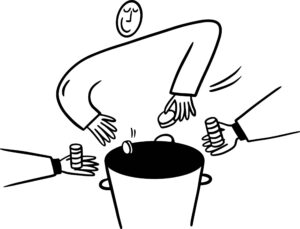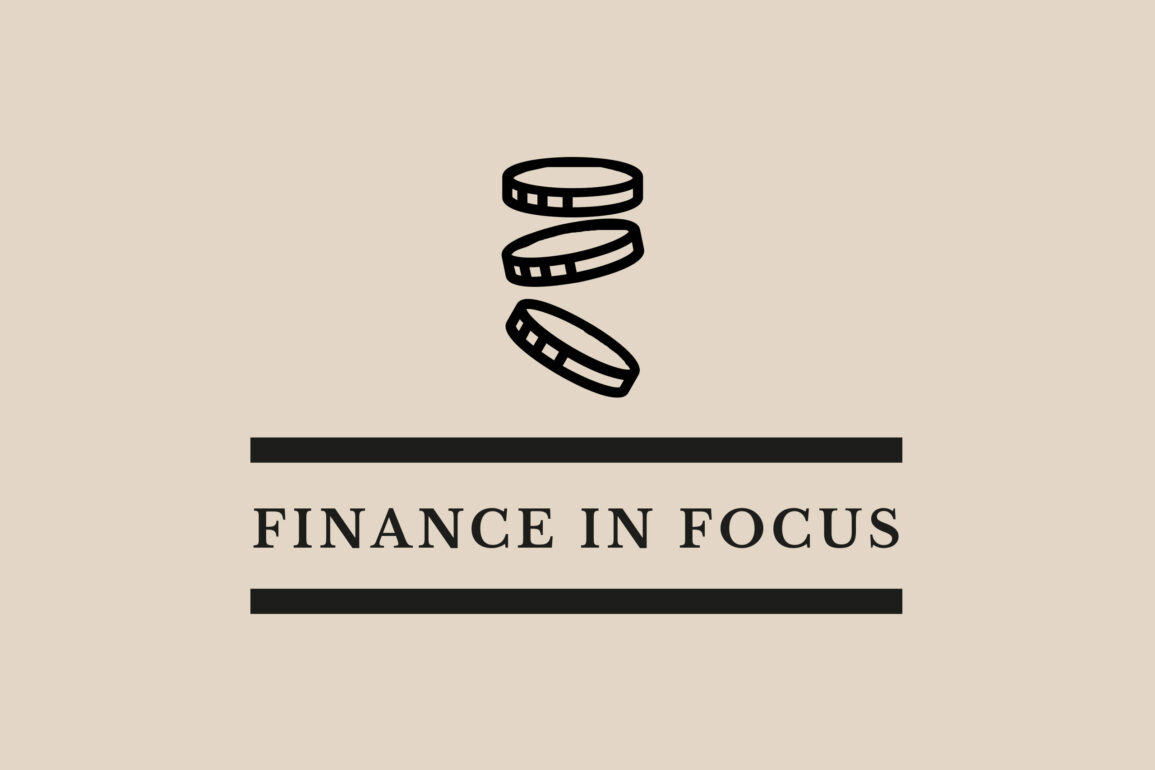Ting is all about redistribution: people who can afford to do so give money to people who have need of it right now. But Ting is also all about trust: what happens if you give strangers money without knowing what they’ve done in the past? Won’t they just fritter away the cash?

Three years after the project was launched, the founders of this redistribution platform can answer this with an unequivocal ‘no’. ‘Of course, we’ve had a few bad experiences,’ says co-founder Ondine Riesen, but most members are honest and altruistic, she explains. They don’t just request the maximum amount. Instead, they calculate precisely how much money they really need, or they turn down the remainder of the amount they’ve already been promised because they’ve obtained the money from other sources. Ondine Riesen: ‘Ting is the proof that people don’t exploit our system if they’re part of the community.’

Ting works in line with the solidarity principle: all its members pay into a shared bank account each month. The minimum amount varies depending on the membership and there’s no upper limit. If a person wants financial support for a specific project, they can draw money from the shared account for a particular period of time, while also enjoying access to the community’s expertise.
The maximum amount a person can receive is a monthly stipend of 2,500 Swiss francs for six months. Then there are people dubbed ‘enablers’: members who pay into the community account without expecting anything in return. ‘In other words, Ting builds a bridge between people who want to try something new but don’t have the money and people who have enough money and want to support other people’s projects,’ explains Ondine.
Making time
The Grundeinkommen (literally, ‘basic income’) association is behind the Ting project. After the vote for a universal basic income in 2016 came to naught, the association had to decide what to do next, says Silvan Groher, project manager at Ting. This time, it didn’t turn its gaze to the political sphere, but to civil society. The idea behind Ting is ultimately the same: the belief that people can unleash their creative potential if they’re less worried about paying for life’s essentials. ‘We give people the chance to think about what other kinds of things they’d like to do with their life,’ says Silvan. Thanks to financial support from a private individual, the association was able to work with the think-and-do tank Dezentrum to develop the project concept and the associated online platform. ‘And then, when we were ready to go, coronavirus hit,’ recalls Ondine Riesen. Without delay, they used the software as part of a collaboration with the wemakeit crowdfunding platform to collect money for various groups, including creatives who were left without an income during lockdown and received no support from the state.
All told, 280,000 Swiss francs were distributed swiftly and with zero bureaucracy. ‘We received such touching feedback,’ explains the co-founder. Some recipients also repaid the money down the line. ‘That confirmed to us that Ting was heading in the right direction.’

‘Money is a means to an end, but it is the people who carry out a project.’
Silvan Groher, Co-Founder Ting
The diverse community
Ting has been online since June 2020. At present, its community comprises more than 430 members, from architects to doctors and Qi Gong trainers. Ting gives people lots of freedom, whether that’s a single mother who needs a temporary income to complete her course or those who are braving the step towards self-employment or daring to launch a sustainability project.

There are a few strings attached: if you want money for a project, you need to make an application. This is reviewed by at least five members, plus external auditors, in line with four criteria. A project can also be turned down if it seems half-baked. On the website, members can access an online tool for formulating goals, including working out how much money and time they need – the better their plans, the better their prospects of success.
The sense of belonging to a group
But Ting is about much more than just money: it’s also about sharing knowledge. The platform offers its members all kinds of ways to network with each other. Plus, the core team organises regular events where the community can meet in person and share their experiences. The feeling of being part of a community is just as important to members as the money, Silvan Groher believes: ‘The money is a means to an end, but the people are what motivates you to see a project through.’ This community spirit may be why enablers pay into an account without ever getting an income from it – like the major donor who’s been giving Ting 20,000 Swiss francs a month since the start of the year because they believe in the ‘power of togetherness’.
‘Ting is proof that people don’t take advantage of a system when they are part of the community.’
Ondine Riesen, Co-Founder Ting
A new approach to funding
Ting’s core team currently consists of five people, who collect and distribute membership contributions, manage the platform, organise events and workshops and look after fundraising. This latter activity is a time-consuming, energy-sapping endeavour at present. After three years, Ting’s initial funding from the Migros Pioneer Fund has come to an end. While the number of members is increasing, there aren’t nearly enough of them to make the project self-sufficient. As they’re looking for new funding partners, the team is noticing that Ting slips through the cracks. Grant giving foundations award their funding based on certain criteria, but ‘so far, redistribution hasn’t existed as a criterion,’ says Ondine Riesen. In addition, Ting doesn’t unilaterally tie its money to a particular purpose: ‘We support the people behind a project, not a project itself.’ In other words, Ting doesn’t monitor what someone ultimately spends the money on. ‘We trust that individuals have the best sense of what they need the most,’ believes Silvan Groher. Its founders also see Ting as the epitome of a new approach to funding or a future social system, one with a lean approach to bureaucracy and that focuses on individuals’ needs through trust, not control.
First off, Ting needs to find new sources of funding. Otherwise, its project managers might be in the same boat as some of their members: with a great idea but no money to make it a reality.



